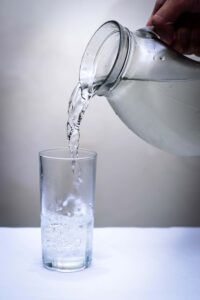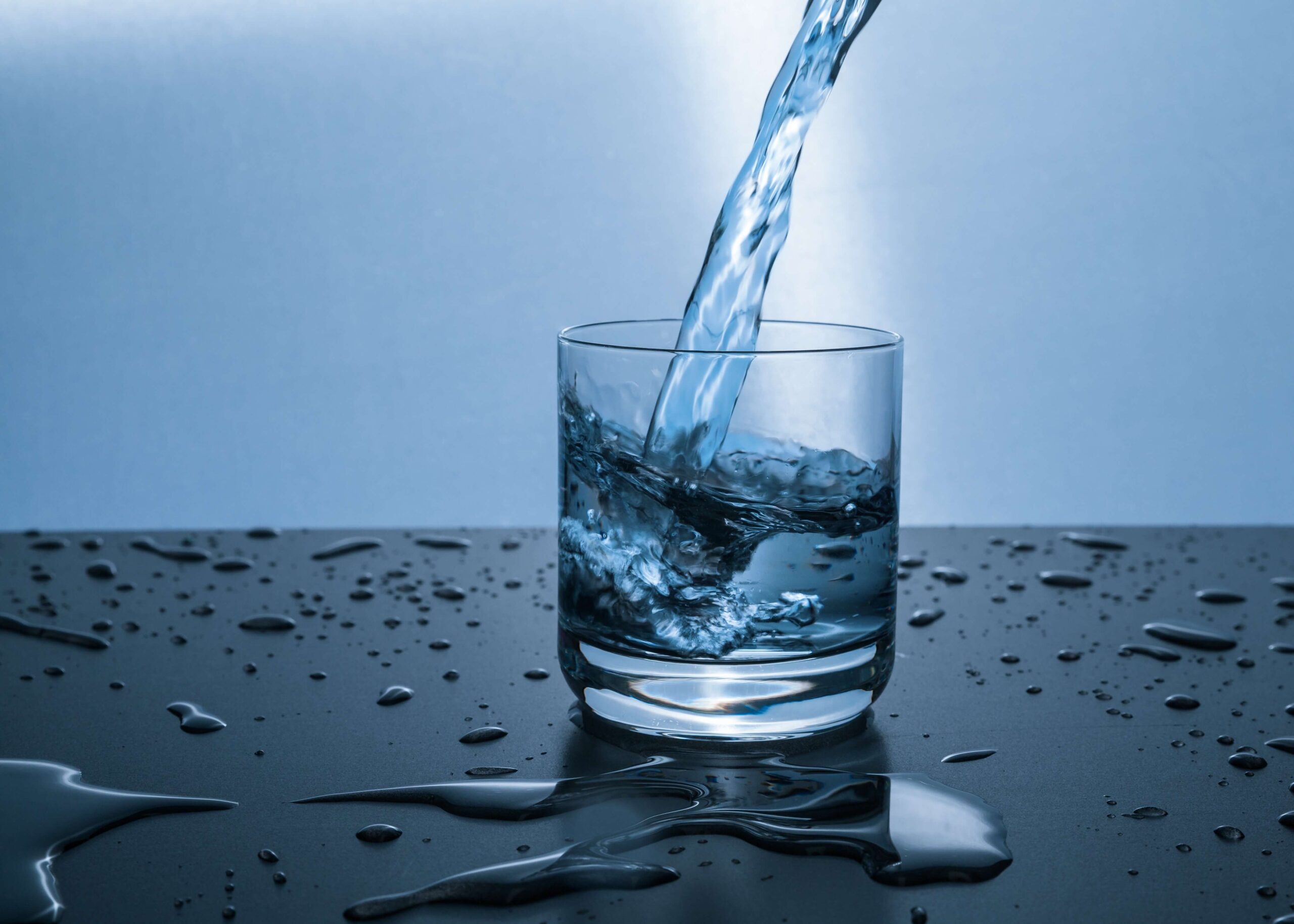Is it true that water is essential for your health? Yes! 
Water is considered second only to oxygen as an essential component of life, said experts. According to the US Geological Survey, 60 percent of your body weight is made up of water.
You couldn’t survive more than a few days without water because more than half of your body weight. On the other hand, you can survive for weeks without eating. So, we need to start our day with a glass of water.
Prevents digestive problems
Drinking water before, during, and after a meal, contrary to popular belief, can assist your body break down the food you eat more efficiently. This will assist you in more effectively digesting food and maximizing the nutritional value of your meals.
Both your small and large intestines absorb water after you drink, which then goes into your circulation and is needed to break down nutrients. According to the National Institute of Diabetes and Digestive and Kidney Diseases, faeces transform from liquid to solid as your large intestine absorbs water. According to MedlinePlus, water is also important to aid in the digestion of soluble fibre. This fibre binds with it and delays digestion. To function properly, the bowel needs water. Dehydration can cause digestive difficulties, constipation, and a stomach that is too acidic. Heartburn and stomach ulcers are more likely as a result of this. (1)
Removal of body waste
Sweating, as well as the elimination of urine and faeces, requires it.
It aids in the removal of waste, primarily by urination. Your body can eliminate waste through perspiration, urine, and faeces if you drink enough water. According to the National Kidney Foundation, it helps your kidneys remove waste from your blood and keep the blood capillaries that travel to your kidneys open and filter them out.
You additionally want sufficient water in your system to have a healthy stool and keep away from constipation.
Regulate body temp
Sweating and respiration help to control our internal body temperature. When the body heats up, water held in the middle layers of the skin rises to the surface through sweating. It cools the body as it evaporates. In sports, for example. Some scientists believe that when the body has too little water, heat storage increases and the individual’s ability to handle heat stress decreases. If heat stress occurs during exercise, a large amount of water in the body may help to alleviate physical strain. Although, more investigation into these impacts is required.
Maintains blood pressure
Blood becomes thicker when there is a lack of water, which raises blood pressure. Your blood contains a lot of water. (For example, according to Britannica, plasma — the pale-yellow liquid element of your blood — contains 90%) According to Susan Blum, MD, founder of the Blum Center for Health in Rye Brook, New York, as you become dehydrated, your blood becomes more concentrated, resulting in an imbalance of the electrolyte minerals it contains (for example, sodium and potassium). Electrolytes are essential for muscle and cardiac function. “Because dehydration lowers blood volume and consequently blood pressure, you may feel light-headed or woozy upon standing up,” she says. (2)
Shock absorbent for joint
Water makes up around 80% of cartilage, which can be found in joints and spinal discs. Dehydration over time can limit the ability of the joints to absorb trauma, resulting in joint pain. (3)
Cushions brain, spinal cord and other tissues
Dehydration can have an impact on the structure and function of the brain. It’s also essential in hormone and neurotransmitter synthesis. Dehydration for an extended period of time might cause problems with reasoning and thinking. According to the Mayo Clinic Health System, it also protects the spinal cord and keeps the tissues in your body moist.
Detoxifies your body and prevents kidney stones
Water helps your kidneys function better by moving toxins through your system more rapidly. Your kidneys are also responsible for filtering waste from your body through urination. Adequate water consumption aids kidney function and prevents kidney stones. (4)
Boost performance during exercise and prevent dehydration
Drinking water can help to speed up your metabolism. An increase in metabolism has been linked to increased energy levels. It is important to drink plenty of water while exercising. During physical activity, athletes may sweat up to 6% to 10% of their body weight. Strength, power, and endurance are all affected by hydration. If you’re doing endurance training or high-intensity sports like basketball, you may be more vulnerable to the consequences of dehydration. Dehydration appears to have a negative effect on physical performance for activities lasting more than 30 seconds, according to the research. (5)
Skin nourishment
Drinking enough water will keep your skin moisturized and may even encourage collagen synthesis. It is the most effective way to prevent skin aging and wrinkles. Dehydration makes skin more susceptible to skin diseases and wrinkles.
Form saliva and mucus
Saliva contains a lot of water as one of its key components. Electrolytes, mucus, and enzymes are all found in minute concentrations in saliva. It is necessary for the digestion of solid foods and maintaining oral hygiene. With regular water consumption, your body creates enough saliva. Saliva aids digestion and maintains moisture in the mouth, nose, and eyes. Friction and damage are thus avoided. It is also good for keeping your mouth clean. It can also help prevent tooth decay when used instead of sugary beverages. (6)
Must Read >>
- What is the Health Benefits of Ginger.
- What are Generic Medicine: Myths and Facts.
- Exercise During Pregnancy: Do’s and Don’ts
- Breast Cancer Awareness: Its Importance and Benefits
- What are the benefits of coconut water
- Weight loss exercise from home
- Exercises for frozen shoulder at home
